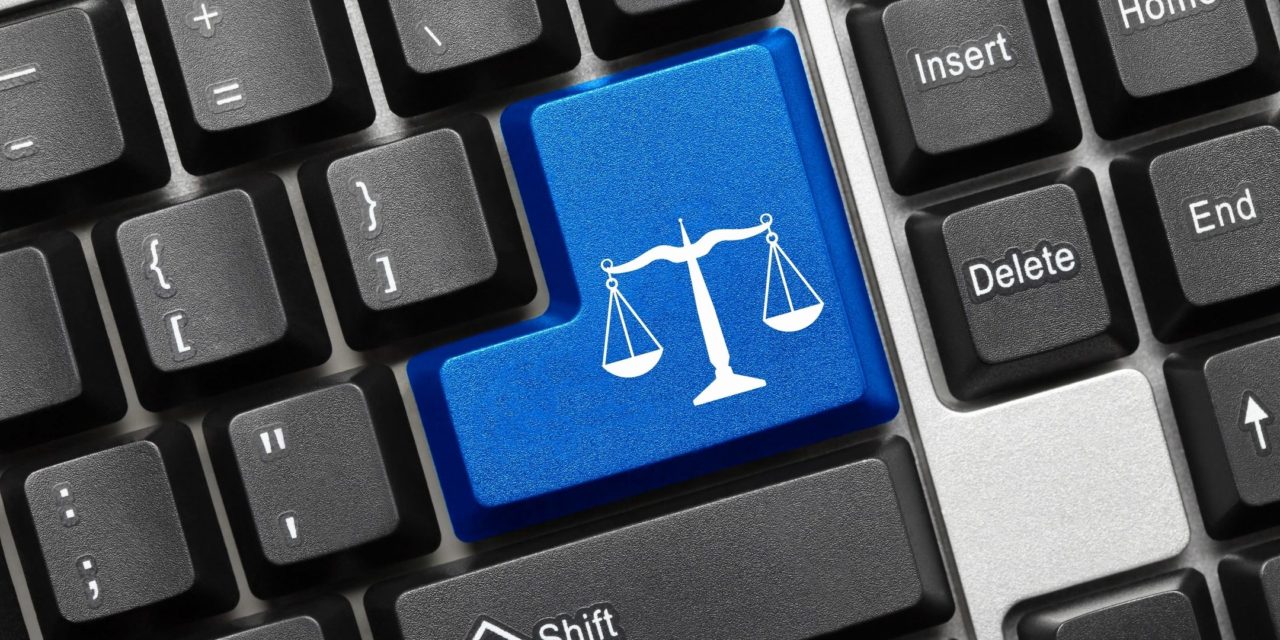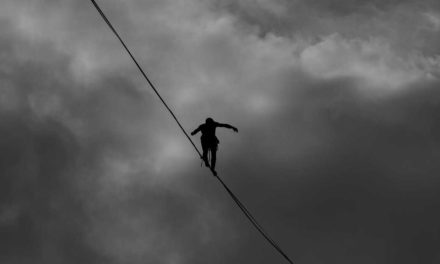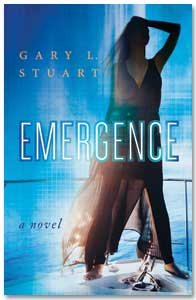There are times when tragedy just won’t stay still. It rises up into calamity, and then with enough emotional fuel, morphs into catastrophe. The merciless, senseless death of a man is tragic for him, his family, and his community. But communities are never singular—they are populations and they spread tragedy’s fatal flaw—hamartia.
Hamartia is a personal flaw—a defect so egregious that it brings about a tragic downfall. Aristotle used the word in his Poetics, as an error in judgment. If by training, a man is taught to use his knee to take the life of a suspected forger, that man suffers the tragic flaw and the man he kills will be not just mourned but brought back to life in words, pictures, protests and chaos.
This blog is not about George Floyd, his home city of Minneapolis, or even his tragic death on May 25, 2020. It is about the ethics of describing the event, the consequences, and the larger issue of police brutality focused on race.
The famous battle cry, J’ Accuse, comes immediately to mind. What happened to George Floyd snaps us back to the late 19th century and an open letter from Émile Zola to Félix Faure, President of France, condemning the imprisonment of Alfred Dreyfus. From time immemorial, when death comes at the hand of those who claim to protect and serve but who use their power positions to kill, the consequences radiate into a nuclear cloud. When police kill first and ask questions later, the mounting cry, J’ Accuse, takes center stage, from podiums, TV stations, and chalk marks on sidewalks. The accusation, born of suspicion will soon be an allegation. Allegations become rallying calls and find their way onto posters and T-shirts. They are boomed onto streets and neighborhoods. Black Lives Matter is more than just a call to justice; it is a call that describes killing by taking a knee. Those optics will never go away.
What ethical norms govern written accusations, specifically words written for public consumption? Words that wound as they inform, cause stomachs to growl and lockup blood vessels like a migraine attack. The kind of words that shout rather than tell and have edges like paper cuts on your eyes. Words that can do that must have ethical guidance. The most obvious ethical guidance is truth.
Is the accusation true? The answer lies not in diction, but in definition. Some accusations are written as fact. Others as mere opinions. The difference is mountain high. When the writer intends his accusation to be taken as fact, it must stand the test of truthfulness. When the writer intends her accusation to be taken as opinion, it must merely be firmly held by the writer.
Is the accusation accurate? Accuracy does not necessarily equate to truthfulness. Technically, accuracy means the degree to which the result of a measurement, calculation, or specification conforms to the correct value or a standard. An accusation that ties death to a specific event or cause is a calculated estimate that might later prove to be false or a loosely held opinion.
Is the accusation motivated by personal gain, notoriety, or malice? Accusations made by people with skin in the game are not only common; they are widely thought to be acceptable ethical conduct. Accusations made for added notoriety are par for the platform of politicians, pundits, causes, and justice seekers. Accusations maliciously rendered, especially in writing, are unethical.
Public media thrives on accusations. The written evidence is headlines. The Sunday New York Times, a few days after the now-infamous George Floyd killing, was one part accusation and one part consequence. “Spreading Unrest Leaves a Nation On Edge.”[1] Separate columns bled with details. “President Needles as America Burns.” “In the Flames, a Fear of Spiraling Chaos.” “Heaps of Complaints, but Police Resist Change.” Headlines and subtitles are journalism’s packaging. They reveal just enough to entice buyers, while hinting at the longer story.
The ethical tests of headlining and subtitling are well known and easily fact-checked. Since 1909, the Society of Professional Journalists has been “Improving and protecting journalism.”[2] They mean what they say—“Ethical journalism strives to ensure the free exchange of information that is accurate, fair and thorough. An ethical journalist acts with integrity.” They have four ethical tests. (1) Seek Truth and Report It. (2) Minimize Harm. (3) Act Independently. (4) Be Accountable and Transparent. The banner headline above and the four subtitles meet all four ethical tests.
Accusations, especially when filmed and plastered nationwide on all media outlets, are breeding places for catchy phrasing. In Mr. Floyd’s case, they gave birth to eloquent simplicities and damning truth.
“There’s not a vaccine for white supremacy,” made the May 31, New York Times’ Sunday Review Section.[3]
“’We are human beings that want justice. We have yet another innocent man being killed by a police officer.”[4]
In Fargo, North Dakota, there was a 2,000-person march through the city. Demonstrators chanted “I can’t breathe” – three of Floyd’s dying words – plus a call-and-response: “What’s his name? George Floyd!”[5]
Accusations are like seeds. They grow if watered, planted in fertile soil, and tended. Accusations, like weeds, often break the earth’s crust and spring up into full-bloomed allegations. Allegations differ from accusations primarily in word-count and purpose. Accusations are claims hoping to become allegations. So they are longer, more forceful, and have legal standing, not just popular acclaim.
In law, an allegation is a claim of a fact by a party in a pleading, charge, or defense. Until they can be proved, allegations remain merely assertions. They take many forms—an affidavit supporting an arrest warrant—a grand jury indictment—a formal criminal complaint filed in court. They are accusatory but supported by facts, criminal statutes, and due process of law.
In the George Floyd case, the accusations were protest signs, red paint splashed on police cars, and the inevitable T-shirt branding. The allegations took a very different form—articulated sentences alleging actual, provable crimes. The written complaint against one of the four officers involved in Mr. Floyd’s arrest alleges, “Chauvin had his knee on Mr. Floyd’s neck for eight minutes and 46 seconds in total. Two minutes and 53 seconds of this was after Mr. Floyd was non-responsive. Police are trained that this type of restraint with a subject in a prone position is inherently dangerous.”[6]
If the media got it right and these three sentences are the essence of the criminal charge, they are subject to legal-ethical standards. The legal standard is widely known as Rule 11 in both state and federal courts. As you would expect, it is longer than simple ethical rules and broad by legal necessity.
By presenting to the court a pleading, written motion, or other paper—whether by signing, filing, submitting, or later advocating it—an attorney or unrepresented party certifies that to the best of the person’s knowledge, information, and belief, formed after an inquiry reasonable under the circumstances: (1) it is not being presented for any improper purpose, such as to harass, cause unnecessary delay, or needlessly increase the cost of litigation; (2) the claims, defenses, and other legal contentions are warranted by existing law or by a nonfrivolous argument for extending, modifying, or reversing existing law or for establishing new law; (3) the factual contentions have evidentiary support or, if specifically so identified, will likely have evidentiary support after a reasonable opportunity for further investigation or discovery; and (4) the denials of factual contentions are warranted on the evidence or, if specifically so identified, are reasonably based on belief or a lack of information. [7]
The most important ethical element of any accusation is best articulated by its reciprocal—a false accusation. A false accusation is as unethical as it is legally dangerous. False accusations transmitted in writing to others may damage the accused’s reputation, character or integrity. Writing a false accusation may subject the writer to civil or criminal prosecution. By extension, false accusations are inherently unethical.
The core accusation in the George Floyd case is directed at police officers based almost entirely on videotaped evidence. The existence of protest signs and other images will play a role in moving the case from mere accusation to courtroom allegations. The optics are overwhelming; a healthy man dying because he is being lethally restrained by police officers. But the larger accusation is that Black Lives Matter. This accusation is a truism. If the case against Mr. Floyd can be made against those responsible for his death, then the case for all others similarly situated will be advanced by writing, ethically and vividly.
 I am an author and a part-time lawyer with a focus on ethics and professional discipline. I teach creative writing and ethics to law students at Arizona State University. Read my bio.
I am an author and a part-time lawyer with a focus on ethics and professional discipline. I teach creative writing and ethics to law students at Arizona State University. Read my bio.
If you have an important story you want told, commission me to write it for you. Learn how.
[1] The New York Times, Vol. CLXIX, No. 58,710, Sunday, May 31, 2020. Front Page.
[2] https://www.spj.org/ethicscode.asp
[3] Roxane Gay, “Remember, No One’s Coming to Save Us,” The New York Times, Vol. CLXIX, No. 58,710, Sunday, May 31, 2020. Sunday Review, page 3. https://www.nbcnews.com/news/us-news/george-floyd-protesters-their-own-words-we-are-human-beings-n1219571
[4] Anzhane Laine, Washington D.C.,
[5] https://www.duluthnewstribune.com/news/crime-and-courts/6514782-Demonstrators-march-throughout-region-protesting-death-of-George-Floyd
[6] https://kstp.com/news/hennepin-county-attorney-mike-freeman-updates-george-floyd-case-following-former-minneapolis-police-officer-chauvin-arrest/5744900/





 I am an author and a part-time lawyer with a focus on ethics and professional discipline. I teach creative writing and ethics to law students at Arizona State University.
I am an author and a part-time lawyer with a focus on ethics and professional discipline. I teach creative writing and ethics to law students at Arizona State University.  My latest novel is Emergence, the sequel to Let’s Disappear.
My latest novel is Emergence, the sequel to Let’s Disappear.  If you have an important story you want told, you can commission me to write it for you.
If you have an important story you want told, you can commission me to write it for you.